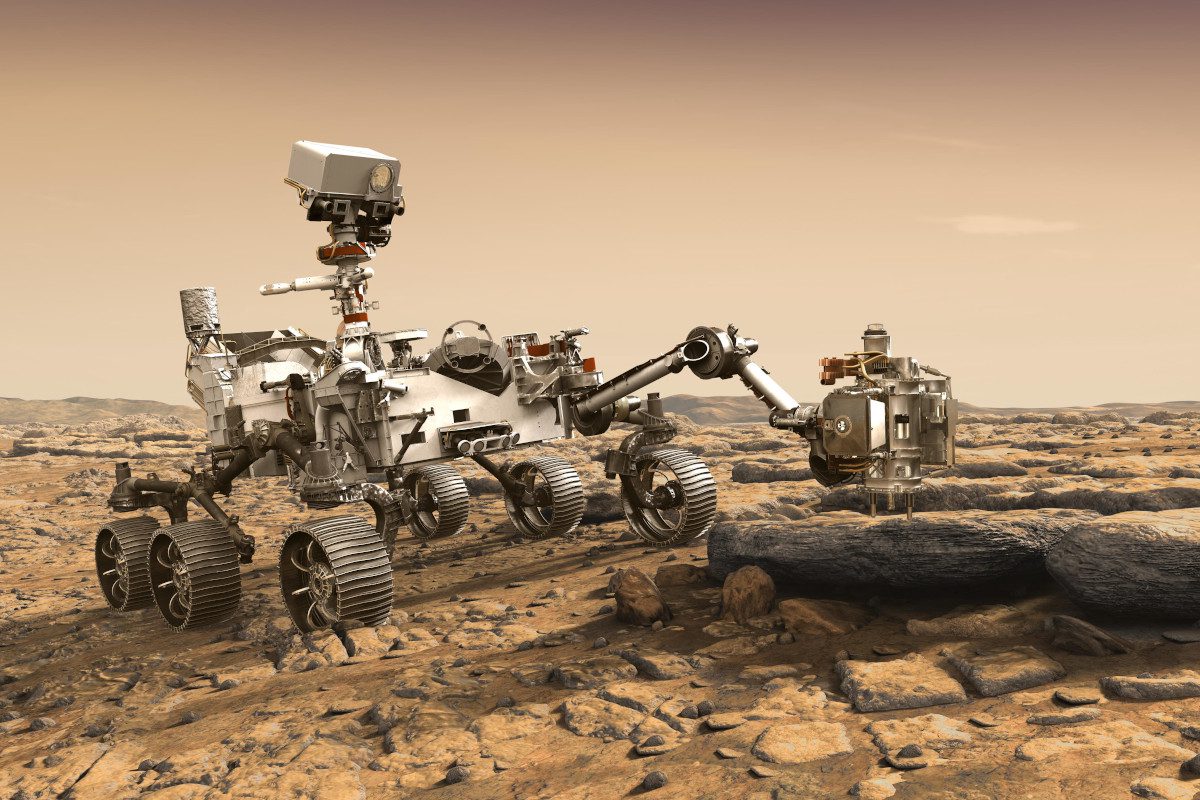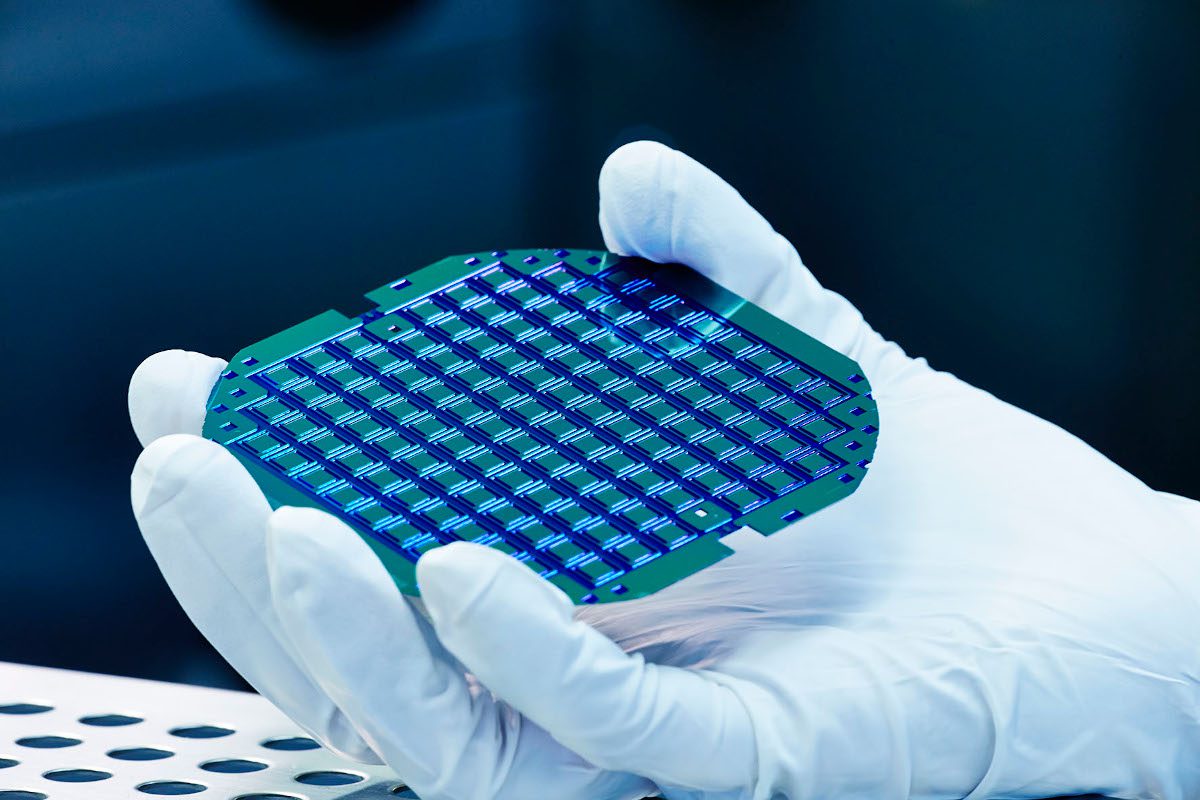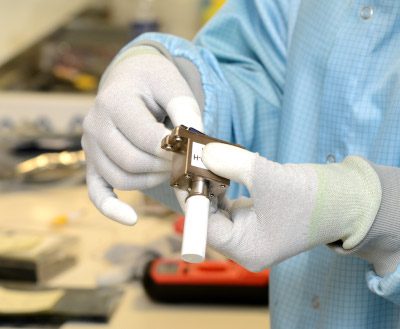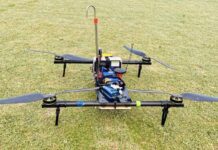
An international collaboration is taking technology from gas measurement expert Vaisala and the Finnish Meteorological Institute (FMI) to Mars onboard NASA’s Mars 2020 Perseverance rover. The rover was launched on 30 July 2020. Vaisala’s sensor technology combined with FMI’s measurement instrumentation are being used to obtain pressure and humidity data from the surface of the red planet.
The Finnish Meteorological Institute (FMI) is among the scientific partners providing measurement equipment for the new Perseverance rover, expected to land on Mars in February 2021. The pressure and humidity measurement devices developed by the FMI are based on Vaisala’s sensor technology and are similar but more advanced than the ones sent to Mars on the first Curiosity rover in 2012.
While working on Mars, the Curiosity and Perseverance rovers will form a small-scale observation network. The network is only the first step, anticipating a much more extensive observation network to be situated on Mars in the future.
Gathering knowledge about the Martian atmosphere
The Mars 2020 mission is part of NASA’s Mars Exploration Program. In order to obtain data from the surface of the Red Planet, NASA selected trusted partners to provide measurement instruments for installation on the Mars rover. A Spanish-led European consortium is providing the rover with the Mars Environmental Dynamics Analyzer (MEDA), a set of sensors that provide measurements of temperature, wind speed and direction, pressure, relative humidity, and the amount and size of dust particles.
As part of the consortium, FMI is delivering instrumentation to MEDA for humidity and pressure measurements based on Vaisala’s sensors.
“Mars, as well as Venus, the other sister planet of Earth, is a particularly important area of atmospheric investigations due to its similarities to Earth. Studying Mars helps us also better understand the behavior of Earth’s atmosphere”, commented Maria Genzer, Head of the Planetary Research and Space Technology group at FMI.
The harsh conditions of Mars present a requirement for the most reliable sensor technology capable of providing accurate data and without the possibility of maintenance or repair.
“We are honored that Vaisala’s core sensor technologies have been selected to provide accurate and reliable measurement data on Mars. In line with our mission to enable observations for a better world, we are excited to be part of this collaboration. Hopefully the measurement technology will provide tools for finding answers to the most pressing challenges of our time, such as climate change,” said Liisa Åström, Vice President, Products and Systems of Vaisala.

Same technology, different planet
In the extreme conditions of the Martian atmosphere, NASA will be able to obtain accurate readings of pressure and humidity levels with Vaisala’s HUMICAP® and BAROCAP® sensors. The sensors’ long-term stability and accuracy, as well as their ability to tolerate dust, chemicals, and harsh environmental conditions, make them suitable for very demanding measurement situations, including in space. The same technology is used in industrial and environmental applications such as weather stations, radiosondes, greenhouses and data centres.
The humidity measurement device MEDA HS, developed by FMI for Perseverance, utilizes standard Vaisala HUMICAP® humidity sensors. HUMICAP® is a capacitive thin-film polymer sensor consisting of a substrate on which a thin film of polymer is deposited between two conductive electrodes. The humidity sensor onboard is a new generation sensor, with superior performance optimised for the low pressure conditions expected on the red planet.

In addition to humidity measurements, FMI has developed a device for pressure measurement, MEDA PS, which uses customized Vaisala BAROCAP® pressure sensors, optimized to operate in the Martian climate. BAROCAP® is a silicon-based micromechanical pressure sensor that offers reliable performance in a wide variety of applications, from meteorology to pressure sensitive industrial equipment in semiconductor industry and laboratory pressure standard measurements. Combining two powerful technologies – single-crystal silicon material and capacitive measurement – BAROCAP® sensors feature low hysteresis combined with excellent accuracy and long-term stability, both essential for measurements in space.
“Our sensor technologies are used widely in demanding everyday measurement environments here on Earth. And why not – if they work on Mars, they will work anywhere,” Åström concluded.
You can follow live updates on NASA’s Mars 2020 Perseverance rover mission at space.com.







